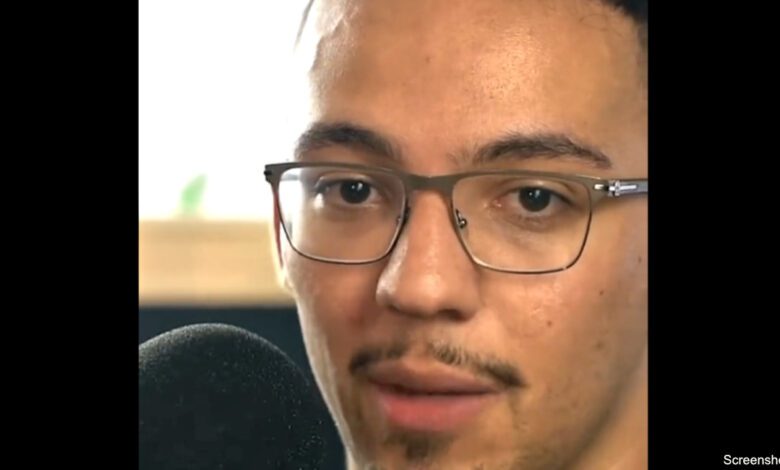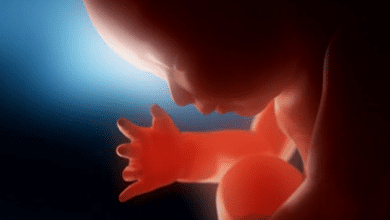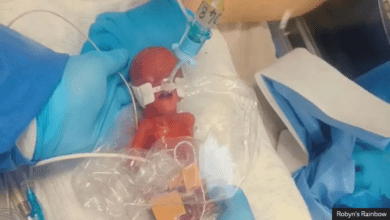Man ‘donates’ sperm over 200 times with no end in sight… for the ‘money’

A man who says he ‘sells his sperm’ to earn an average of $750 a month has ‘donated’ his sperm more than 200 times and has no plans to stop. He said he was just doing it to make money.
In a video shared with X, Lael, a 23-year-old from New Jersey, explained to Financial Audit host Caleb Hammer that in three years, he sold his semen 200 to 250 times. He said there was a rule that sperm should not be used to create more than 25 children, but each “donation” could be used to create up to five people. At 250 times, that’s potentially 1,250 children. However, nothing prevents him from selling his sperm.
It’s about money
When asked why he was doing this, Lael simply replied, “Money.”
“A good month, I’d say $900,” he explained. “If I were to go down, I would say more than the usual $600. If you want to split it in half: $700-$750. That’s what I’m selling, yeah, mm hmmm. … Sometimes they have bonuses where I’ve made thousands a month before, like I’ve made $3,000 a month.”
This man has donated his sperm for the past three years, each donation can be used to create up to 5 children. They claim to cap it at 25 kids total (which is crazy) but he was over 200+ times and they didn’t stop him.
“When they are 18, they can approach me,… pic.twitter.com/lULEbt6Ydp
— Samantha D. (@Prolife_Sam) November 30, 2023
His example – and that of other men who have fathered hundreds of children – contradicts the narrative that such a thing as sperm “donation” even exists. It undermines the idea that the billion-dollar fertility industry was built out of compassion for those living with infertility rather than the huge financial windfall of creating babies for sale. As Lael said, there were months where he was given bonuses — meaning he probably had more sperm than usual during those months.
Lael also said that the clinic where he sold his sperm did not stop him from selling more than 200 times, despite the rules that stipulate the inaccurately named “donations.” Such rules exist in part so that children do not grow up and become close to a half sibling.
Beyond those fears, sperm “donation” is unethical because this man is selling his sperm for profit so that the fertility industry can create children with the full intention of separating those children from their biological parent or parents. Every child has the right to know their biological parents and their genetic history. The fertility industry pays for the sperm (or eggs) and then charges the intended parents tens of thousands of dollars between the price for the “donated” sperm and the IVF process. It’s an industry — not a charity.
The effects of sperm “donation” on children
Some commenters on the Twitter post said that selling the sperm was perfectly ethical because these children were “wanted.”
“Children are with parents who love them and they can meet the sperm donor and their many siblings later, if they choose. Who said they are traumatized by this? Who said they are not loved and loved?” said Rory.
But contrary to Rory’s hopes, it is the children themselves who are now adults — created using artificial reproductive technology and sperm or egg donation — who explain how much damage it has caused them. Some say they are like a business transaction. One person, conceived through sperm donation, he said he would not advise other women to conceive a child with donor sperm. He said he feels deep emotions from being separated from his biological father.
“It’s a no-win situation for a child who grows up donor-conceived,” she said. “The best that can be hoped for is that a child mitigates the negative effects, but that is highly dependent on several circumstances from the environment, access to role models, time for intentionality, economic factors, and that child’s behavior. Without a connection to both biological parents, the process for a child to grow and mature is significantly hindered. Both scientific research and thousands of anecdotal experiences like mine do it’s very clear.”
A man created through traditional surrogacy (his biological mother gave birth to someone else) said, “A terrible thing happened to us at birth. We lost our mothers. They didn’t die, but they might as well be dead because they lost the capacity of the mother, and to a little baby, which is like death… That’s what makes us feel so rejected. It leaves a hole in our hearts whether we admit it or it manifests in other ways like depression or fear of being close to others…”
Unlike adoption
Another X commenter, Brittani, wrote, “It’s respectfully the same as adoption though. A baby who is truly wanted, has the option of meeting biological parents and future siblings, and is fully loved.”
But IVF and sperm donation are far different from adoption. Adoption exists to try get well a wound — the loss of mother or father. Sperm donation, egg donation, and surrogacy exist in create the wound with the intent to separate the child from his biological parent or parents.
Children need and deserve both their biological mother and biological father, and research shows that children grow up in a home with their biological, married parents is healthier physically and mentally. Sadly, the children who live with their mother and her boyfriend are 11 times more likely who have been sexually, physically, or emotionally abused than children who live with their married, biological parents. A 2002 study from the Urban Institute revealed that 15.7% of children aged six to 11 living with cohabiting parents had serious emotional problems such as depression compared to 3.5% of those living with their married parents.







